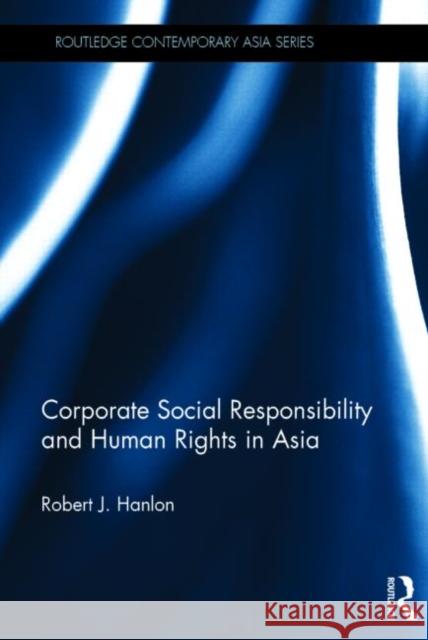Corporate Social Responsibility and Human Rights in Asia » książka
Corporate Social Responsibility and Human Rights in Asia
ISBN-13: 9780415705059 / Angielski / Twarda / 2014 / 212 str.
Corporate Social Responsibility and Human Rights in Asia
ISBN-13: 9780415705059 / Angielski / Twarda / 2014 / 212 str.
(netto: 743,28 VAT: 5%)
Najniższa cena z 30 dni: 705,23
ok. 16-18 dni roboczych.
Darmowa dostawa!
As globalization has brought about new concerns and responsibilities for business, particularly in the realm of human rights, many multinational corporations (MNC) operating in Asia have argued that such rights are the responsibility of government. However, as globalization continues to improve market access for MNCs, it increasingly exposes them to new forms of transnational social movements, and as a result the private sector has emerged as one of the central stakeholders in the region s human rights dialogue.
Taking three of Asia s fastest emerging economies Cambodia, China and Thailand as its starting point, "Corporate Social Responsibility and Human Rights in Asia" explores the business case for corporate social responsibility, human rights and anti-corruption in the region. In doing so, it examines how industry perceives human rights and corruption within the corporate social responsibility (CSR) paradigm, and builds on the argument that the CSR regime is a socially constructed concept. Drawing on interviews with key stakeholders including business leaders, nongovernmental organizations, international organizations and government officials, Robert Hanlon argues that industry perceives human rights as outside their sphere of influence; that divergent stakeholder interests are side-lining the human rights debate; and that human rights are increasingly ignored in the quest for profit-maximization. This leads to the conclusion that human rights and corruption will remain peripheral business issues until stakeholders find new ways of creating space for CSR engagement, and business actors will continue to marginalize the human rights issue so long as governments in the region let them.
This interdisciplinary book draws on political science, business and sociological perspectives and as such, will be of great interest to students and scholars working across the fields of Asian business, corporate social responsibility and business ethics, human rights and international political economy."











